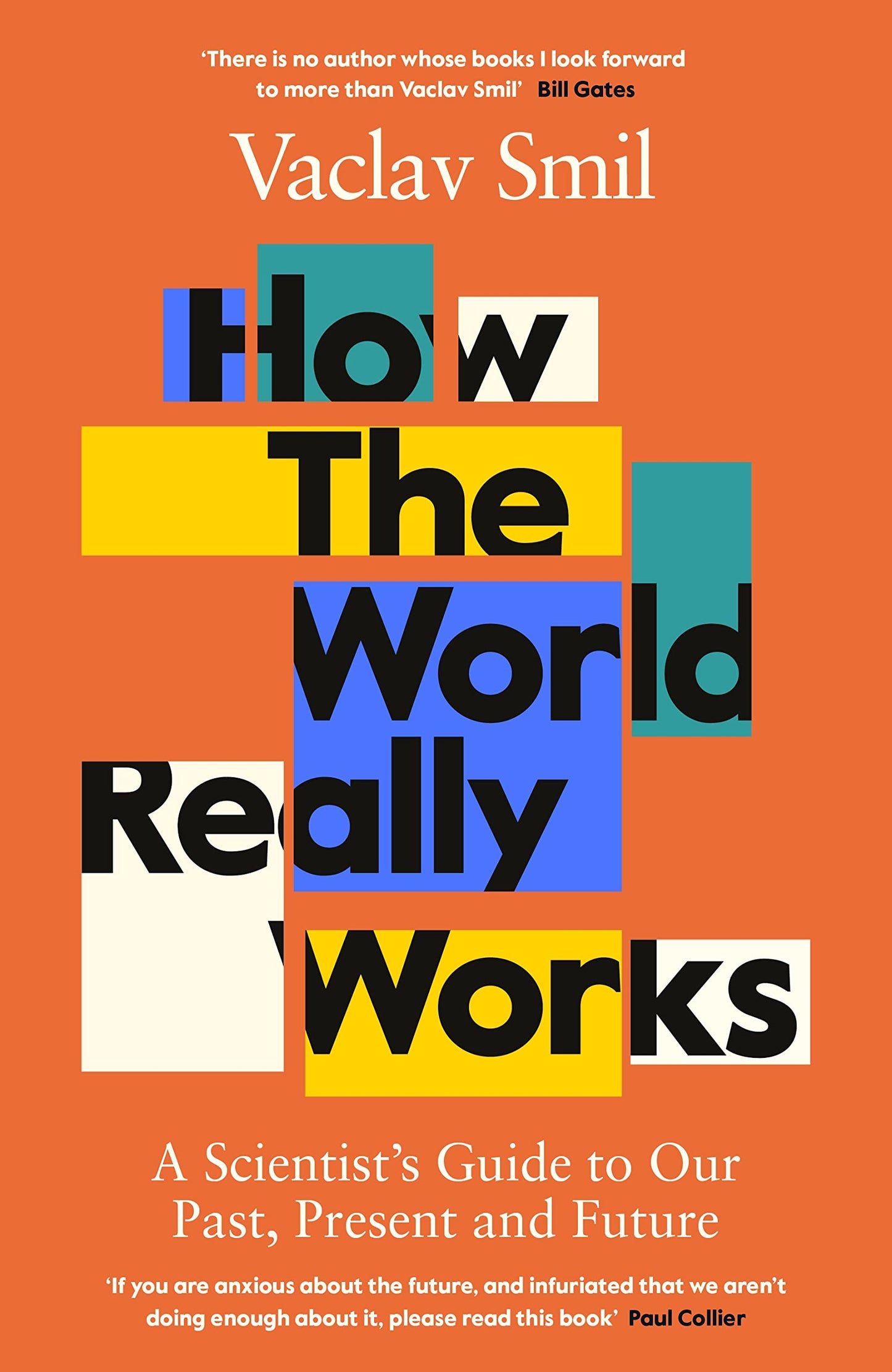1
/
z
1
Vaclav Smil 2022
How the World Really Works: A Scientist’s Guide to Our Past, Present and Future
How the World Really Works: A Scientist’s Guide to Our Past, Present and Future
Běžná cena
349,00 Kč
Běžná cena
Výprodejová cena
349,00 Kč
Jednotková cena
/
za
Včetně daní.
Dostupnost vyzvednutí nebylo možné načíst
Více informací o produktu
Více informací o produktu
Autor: Vaclav Smil
Nakladatelství: Viking
Jazyk: anglicky
Rok vydání: 2022
We have never had so much information at our fingertips and yet most of us don't know how the world really works. This book explains seven of the most fundamental realities governing our survival and prosperity. From energy and food production, through our material world and its globalization, to risks, our environment and its future, How the World Really Works offers a much-needed reality check - because before we can tackle problems effectively, we must understand the facts.
In this ambitious and thought-provoking book we see, for example, that globalization isn't inevitable - the perils of allowing 70 per cent of the world's rubber gloves to be made in just one factory became glaringly obvious in 2020 - and that our societies have been steadily increasing their dependence on fossil fuels, making their complete and rapid elimination unlikely. For example, each greenhouse-grown supermarket-bought tomato requires the equivalent of five tablespoons of diesel oil for its production; and we still lack any commercially viable ways of making steel, ammonia, cement or plastics on the scale required globally without fossil fuels.
In this ambitious and thought-provoking book we see, for example, that globalization isn't inevitable - the perils of allowing 70 per cent of the world's rubber gloves to be made in just one factory became glaringly obvious in 2020 - and that our societies have been steadily increasing their dependence on fossil fuels, making their complete and rapid elimination unlikely. For example, each greenhouse-grown supermarket-bought tomato requires the equivalent of five tablespoons of diesel oil for its production; and we still lack any commercially viable ways of making steel, ammonia, cement or plastics on the scale required globally without fossil fuels.
Share


